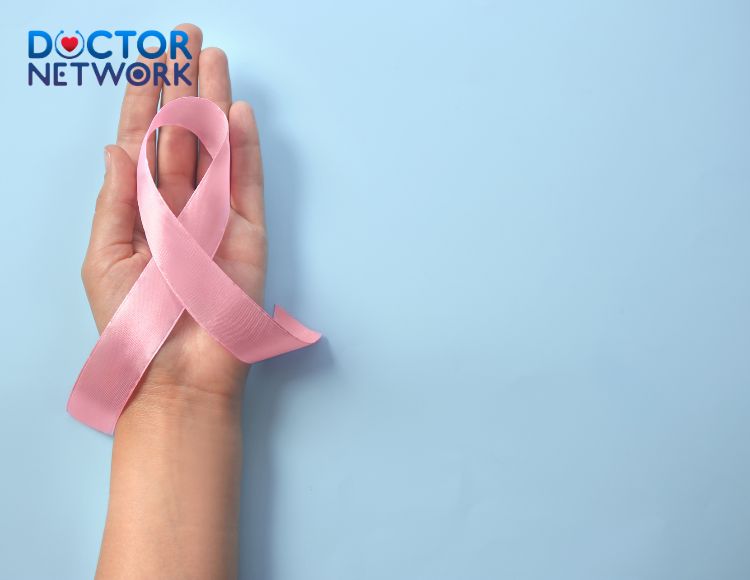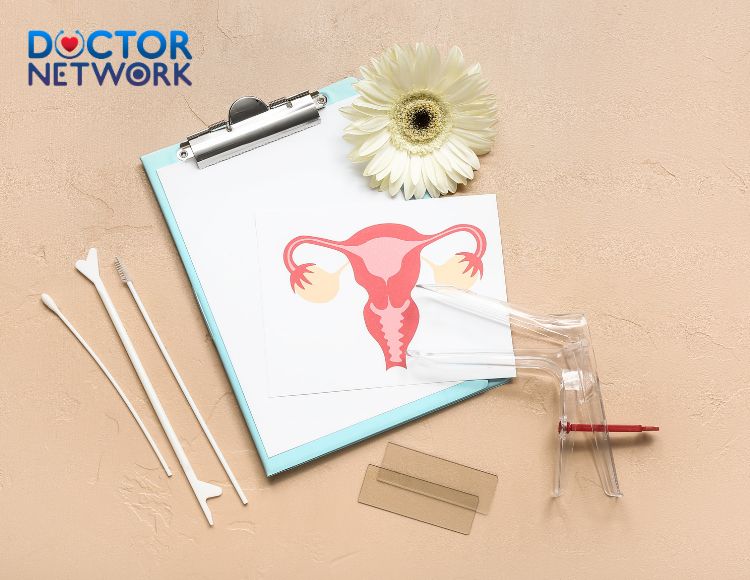Placing vaginal medication is a common method in the treatment of conditions such as vaginitis, vaginal yeast infections, cervical inflammation, etc. However, many women are concerned about the safe timing to resume sexual activity after completing the treatment process. Below is an article providing in-depth information on the issue of “How long to wait after stopping medication before having intercourse“, offering helpful guidance to ensure the safety and health of women.
Understanding Vaginal Medication Placement
- What is vaginal medication placement? It is a technique of delivering medication directly into the vagina to treat localized vaginal infections and inflammations.
- Why is vaginal medication placement necessary? Vaginal medication provides several advantages such as rapid onset of action, high treatment efficacy with fewer systemic side effects compared to oral medications.
- Common types of vaginal medication placement: Vaginal tablets, vaginal suppositories, vaginal creams, etc.
How long to wait after stopping vaginal medication to have intercourse?
There is no one-size-fits-all answer to the question of “how long to wait after stopping vaginal medication to have intercourse”. The abstinence period depends on several factors including:
- Type of medication used: Each medication has different active ingredients, mechanisms of action, and treatment durations.
- Severity of infection: For severe cases, healthcare providers may recommend longer treatment durations.
- Specific instructions from the healthcare provider: It is essential to adhere to the instructions provided by the healthcare provider regarding the duration of medication cessation and sexual abstinence.

“How long after stopping the medication can you have sex” depends on the severity of the infection
The timing of resuming sexual activity after stopping vaginal medication depends on the severity of the infection.
Engaging in sexual intercourse too soon after stopping medication can lead to:
- Reduced medication efficacy and prolonged illness: Residual medication may be washed away, increasing the risk of vaginal reinfection and complicating treatment.
- Discomfort for both partners: The vagina may still be sensitive, leading to pain or irritation during intercourse.
- Increased risk of transmission to partners: Especially if the cause of vaginal infection is sexually transmitted.

“How long after stopping taking the medicine can you have sex?” – if you have sex incorrectly, it can reduce the effectiveness of the medicine and prolong the illness
Ensuring Safe Resumption of Sexual Activity
Sexual activity should be responsible, involving the use of condoms or other protective measures to minimize the risk of disease transmission or re-infection. Proper genital hygiene: Both partners should maintain proper genital hygiene before and after intercourse, using warm water or specialized cleansing solutions. Regular gynecological check-ups: Ensure good reproductive health, timely detection, and treatment of any issues.

“How long after stopping the medication can I have sex?” – need to discuss with a doctor
Considerations When Using Vaginal Medication
Possible side effects: Mild itching, burning sensation, increased vaginal discharge, etc., may occur as unwanted reactions; inform your healthcare provider if discomfort persists. Do not discontinue medication without medical advice: Interrupting treatment may worsen the infection, and drug-resistant bacteria may pose challenges in subsequent treatment. Healthy lifestyle: Adequate rest, a nutritious diet, and boosting the immune system are essential for effective disease control.
Common Questions Regarding “How long to wait after stopping medication before having intercourse”
Here are 5 frequently asked questions closely related to the topic of “How long to wait after stopping medication before having intercourse“, along with in-depth answers:
I am treating vaginitis with vaginal medication; when is it safe to resume intercourse?
Vaginal medications typically contain antibiotics or antifungal agents to eliminate causative agents of infection. The period of sexual abstinence depends on the healthcare provider’s recommendation, usually around 7-10 days or longer for severe cases. The most crucial aspect is completing the full treatment regimen, waiting a few days after finishing medication, and ensuring the absence of symptoms such as abnormal discharge or itching before considering intercourse again.
Does having intercourse immediately after vaginal medication placement cause harm?
Yes, having intercourse immediately after vaginal medication placement can lead to several issues: Washing away of medication, reducing treatment efficacy, and increasing the risk of reinfection. Causing discomfort or pain for both partners due to vaginal irritation. Heightening the risk of infection transmission if the cause of vaginal infection is sexually transmitted.
After using vaginal medication, I noticed an increased amount of white discharge; can I have intercourse?
This could be the normal expulsion of residual medication. Wait until all abnormal discharge ceases and there are no vaginal symptoms before resuming sexual activity to ensure safety. If unsure, consult with a gynecologist for further advice.
Do I need to abstain from intercourse during the time I am using vaginal medication?
Yes, indeed. It is advisable to abstain from sexual intercourse throughout the vaginal medication treatment process. This helps optimize medication effectiveness, avoid additional irritation, and reduce the risk of infection transmission to partners.
Besides using vaginal medication, what else should I consider to effectively treat vaginal infections?
Strict adherence to the healthcare provider’s instructions regarding medication dosage, duration, and avoiding self-discontinuation. Proper genital hygiene, avoiding deep douching. Wearing breathable underwear made of absorbent materials. Practicing safe sex, using condoms. Scheduling follow-up appointments as recommended by the healthcare provider for assessment of recovery progress.
Scientific Evidence Related to “How Long to Wait After Stopping Vaginal Medication to Have Intercourse”
Below are some scientific references related to the question of “how long to wait after stopping vaginal medication to have intercourse”:
A meta-analysis on the abstinence period after using metronidazole vaginal suppositories for bacterial vaginosis treatment (2016): Study: “Metronidazole vaginal suppositories for the treatment of bacterial vaginosis: a meta-analysis” Method: Analysis of 12 clinical studies involving 1,234 women. Result: Most studies suggest an abstinence period ranging from 1-7 days after using metronidazole vaginal suppositories. The study group recommends abstaining for at least 3 days to ensure optimal treatment efficacy.
Guidelines on the use of clotrimazole vaginal suppositories for vaginal yeast infection treatment (2016) by the American College of Obstetricians and Gynecologists (ACOG): Recommendation: Abstain from sexual intercourse during clotrimazole vaginal suppository treatment (typically 3-7 days). Reasoning: Intercourse may reduce medication effectiveness and increase the risk of infection transmission.
A meta-analysis on the abstinence period after using tinidazole for trichomoniasis treatment (2014): Study: “Tinidazole versus metronidazole for the treatment of trichomoniasis: a meta-analysis” Method: Analysis of 10 clinical studies involving 1,032 women. Result: Most studies suggest an abstinence period ranging from 2-7 days after using tinidazole. The study group recommends abstaining for at least 5 days to ensure optimal treatment efficacy. Guidelines on the use of ornidazole vaginal suppositories for bacterial vaginosis treatment: Source: “Ornidazole: Uses, Interactions, Side Effects, and Warnings” – WebMD Recommendation: Abstain from sexual intercourse during ornidazole vaginal suppository treatment (typically 5-7 days). Reasoning: Intercourse may reduce medication effectiveness and increase the risk of infection transmission.
A systematic review and meta-analysis on the abstinence period after using herbal suppositories for bacterial vaginosis treatment (2018): Study: “Efficacy and safety of herbal suppositories for the treatment of bacterial vaginosis: a systematic review and meta-analysis” Method: Analysis of 8 clinical studies involving 524 women. Result: Most studies suggest an abstinence period ranging from 3-7 days after using herbal vaginal suppositories. The study group recommends abstaining for at least 3 days to ensure optimal treatment efficacy. Note:
Scientific studies provide reference information only. The exact abstinence period after stopping medication should be advised by a gynecologist based on the specific condition of each patient. Conclusion
Understanding the timing of “How long to wait after stopping medication before having intercourse” is crucial for women’s health and sexual lives. Prioritize visiting a healthcare provider for accurate advice, practice responsible sexual behavior, and always safeguard your reproductive health.
References:
https://www.webmd.com/baby/get-pregnant-after-birth-control
https://www.vinmec.com/en/news/health-news/obstetrics-gynecology-and-assisted-reproductive-technologies-art/can-i-have-sex-after-taking-gynecological-medicine/
https://www.medicalnewstoday.com/articles/320097
Kiểm Duyệt Nội Dung
More than 10 years of marketing communications experience in the medical and health field.
Successfully deployed marketing communication activities, content development and social networking channels for hospital partners, clinics, doctors and medical professionals across the country.
More than 6 years of experience in organizing and producing leading prestigious medical programs in Vietnam, in collaboration with Ho Chi Minh City Television (HTV). Typical programs include Nhật Ký Blouse Trắng, Bác Sĩ Nói Gì, Alo Bác Sĩ Nghe, Nhật Ký Hạnh Phúc, Vui Khỏe Cùng Con, Bác Sỹ Mẹ, v.v.
Comprehensive cooperation with hundreds of hospitals and clinics, thousands of doctors and medical experts to join hands in building a medical content and service platform on the Doctor Network application.

























